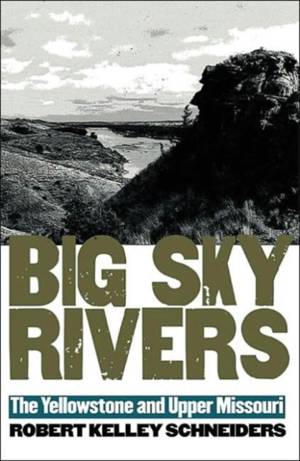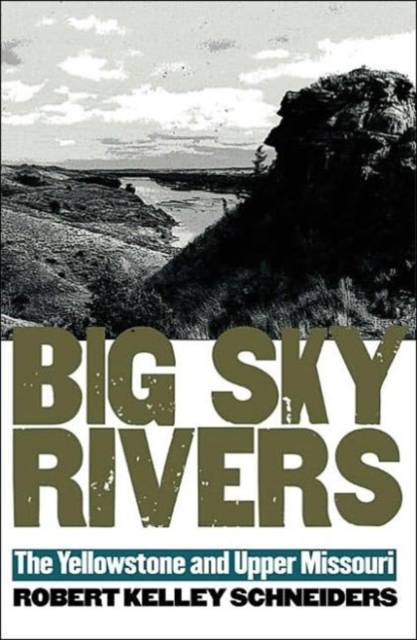
- Retrait gratuit dans votre magasin Club
- 7.000.000 titres dans notre catalogue
- Payer en toute sécurité
- Toujours un magasin près de chez vous
- Retrait gratuit dans votre magasin Club
- 7.000.0000 titres dans notre catalogue
- Payer en toute sécurité
- Toujours un magasin près de chez vous
51,95 €
+ 103 points
Récompenses
Description
Historically, it is the land of the bison. But the land across which these powerful herds once thundered has been transformed. We know it today by such names as Montana, Wyoming, Dakota, western Iowa, and Nebraska--but it is really buffalo country, the land of the big sky rivers. This book is a tale of two rivers, a history of the majestic Missouri and how it was once wedded to the Yellowstone. Though quite different today--one dammed into reservoirs, the other unregulated with a semblance of wildness--they were once linked ecologically, geographically, and historically. Then in the twentieth century, Euro-Americans dismantled many of these connections and attempted to uncouple the streams. Viewing the rivers and their surrounding lands as a living system, Robert Kelley Schneiders focuses on four components within the Upper Missouri bioregion--the Missouri River valley, the Yellowstone River valley, Homo sapiens, and bison--to show the significance of their interaction over the past two hundred years. To frame his story, Schneiders goes back to the nineteenth-century journals of fur traders and settlers, and in the record of flora, fauna, floods, and human activity he finds evidence of rapid and disruptive change. Bison once had the greatest influence on the land, and Schneiders depicts an original bison and Indian trail network on which were overlaid the first forts and towns and then the railroads, highways, and reservoirs that reconfigured the region forever. Schneiders explains how these geographical constructs interacted with larger demographic and economic trends in the twentieth-century West, as dams and their resultant reservoirs enhanced the federal presence in the Dakotas and eastern Montana. He describes human encroachment on the rivers and tells why the Corps of Engineers dammed the Missouri but spared the Yellowstone. The engineers and their backers have so completely engineered the Missouri that few people today think of it as anything other than water. But we can reestablish our bonds to the river if we decide to let it flow once again, argues Schneiders. Removing the dams on the Missouri is the first step toward reasserting localism and grassroots democracy. In what was once buffalo country, a dormant ecology awaits rebirth. A major work of environmental history, Big Sky Rivers offers a challenging vision for the future of the Upper Missouri bioregion.
Spécifications
Parties prenantes
- Auteur(s) :
- Editeur:
Contenu
- Nombre de pages :
- 392
- Langue:
- Anglais
Caractéristiques
- EAN:
- 9780700612642
- Date de parution :
- 13-10-03
- Format:
- Livre relié
- Format numérique:
- Genaaid
- Dimensions :
- 163 mm x 245 mm
- Poids :
- 820 g

Les avis
Nous publions uniquement les avis qui respectent les conditions requises. Consultez nos conditions pour les avis.








